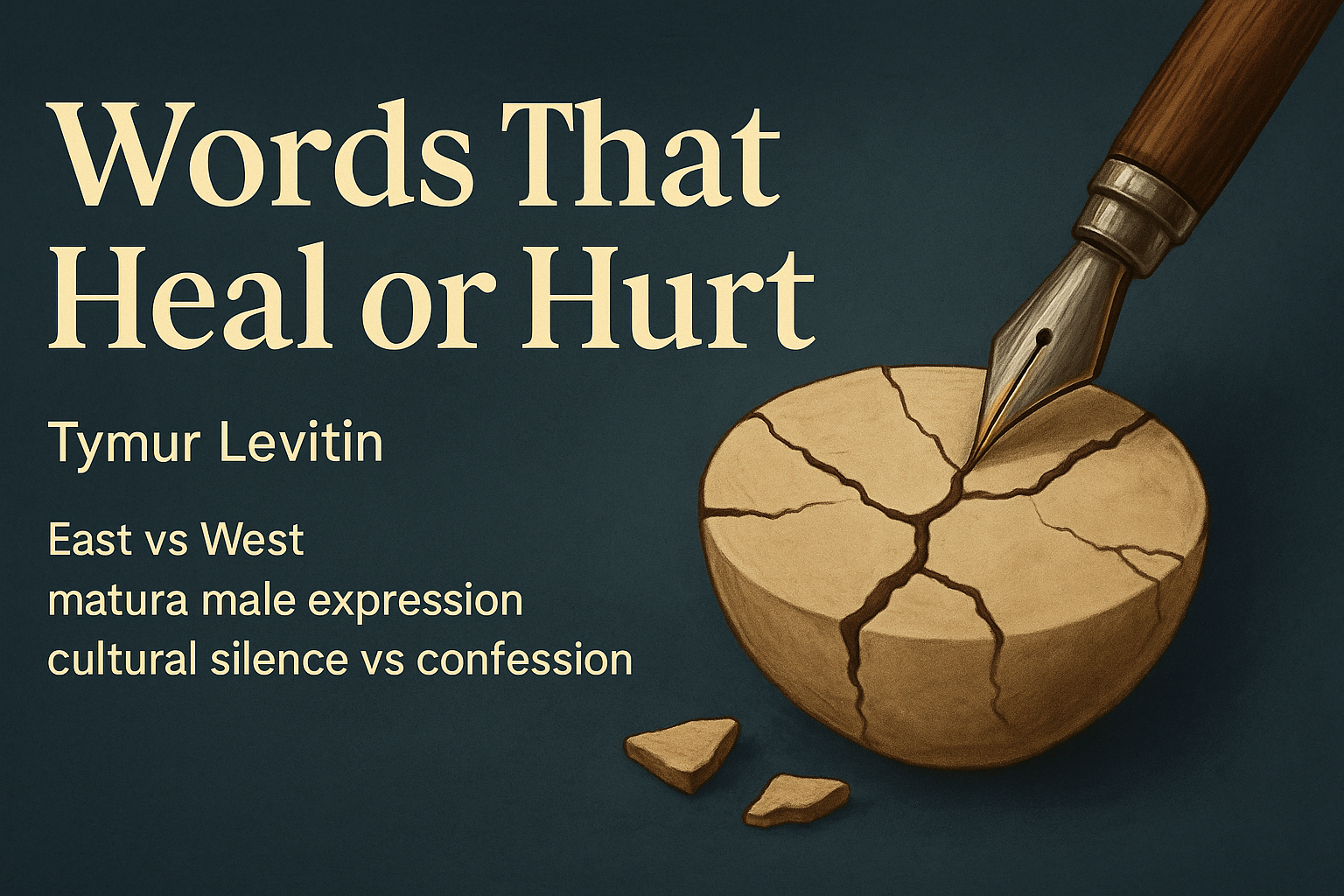A Comparison of Silent Love in Russian and Arab Male Expression
Author’s column by Tymur Levitin — founder, director, and lead teacher of 列维廷语言学校 / Start Language School by Tymur Levitin
🔗 选择语言
Two Men, Two Cultures — One Feeling
Can love exist without words? Can silence be louder than confessions?
In both Russian and Arabic music, we find men who love deeply but speak sparingly. This is not due to a lack of feeling — but perhaps due to how emotions are processed and expressed in their respective cultures.
Let’s compare two powerful examples:
– a heartfelt Russian ballad by Zheka (Evgeniy Grigoriev),
– and the Arab hit “Ya Habibi” 由 Mohamed Ramadan 和 Gims.
“I Love You, But You’ll Just Feel It”
Zheka’s song “When Words Are No Longer Needed” (Когда уже не нужно лишних слов) does not explain, persuade, or dramatize. It simply stops at the edge of speech, where words are no longer useful. The Russian man here expresses affection not through phrases — but through absence of them.
There is pain, there is love, but there are no lengthy declarations. Instead, there’s withdrawal, a final message in silence, a quiet goodbye.
The title alone says enough.
“Habibi” — And Nothing More?
In “Ya Habibi”, the Arabic phrase “my love” becomes an echo — repeated like a heartbeat, not fully unpacked, but deeply felt.
The Arab man in the song does not explain, justify, or analyze. He burns with passion, sings with rhythm and pain — but keeps it at surface level. Emotion here is sound, not sentence.
In both songs, we see men who feel too much to say too much.
Why It Matters in Language Learning
Language is not just grammar and vocabulary. It’s emotion in context.
Through music, we see how men in different cultures express — or avoid expressing — vulnerability.
We learn:
– what’s said,
– what’s left unsaid,
– and what’s meant through silence.
This is essential to language fluency. It’s not enough to speak — we must also understand why someone else might choose not to.
Cultural Layers and Male Identity
Both songs reflect societies where masculine identity values control, restraint, and stoic loyalty.
These aren’t “pop romance” stories — they are portraits of quiet strength.
And that’s what makes them useful for students:
– To understand tone,
– To hear emotion behind language,
– To connect meaning beyond the words.
Because in real life — and in real love — we often don’t say what we feel. But that doesn’t mean we don’t feel it.
Explore more in the same series:
- She Knows, but He Won’t Say: How Men Express Emotion Differently in East and West
- The First Words We Learn in a Foreign Language — and Why They Matter
- Tense Shift in Translation — Why Time Always Matters
📌 Blog category: Author’s Column — Tymur Levitin on Language, Meaning & Respect
© 泰穆尔-列维廷 — Founder, Director and Lead Teacher at Levitin Language School
Slogan: 自由发言。聪明地学习
























